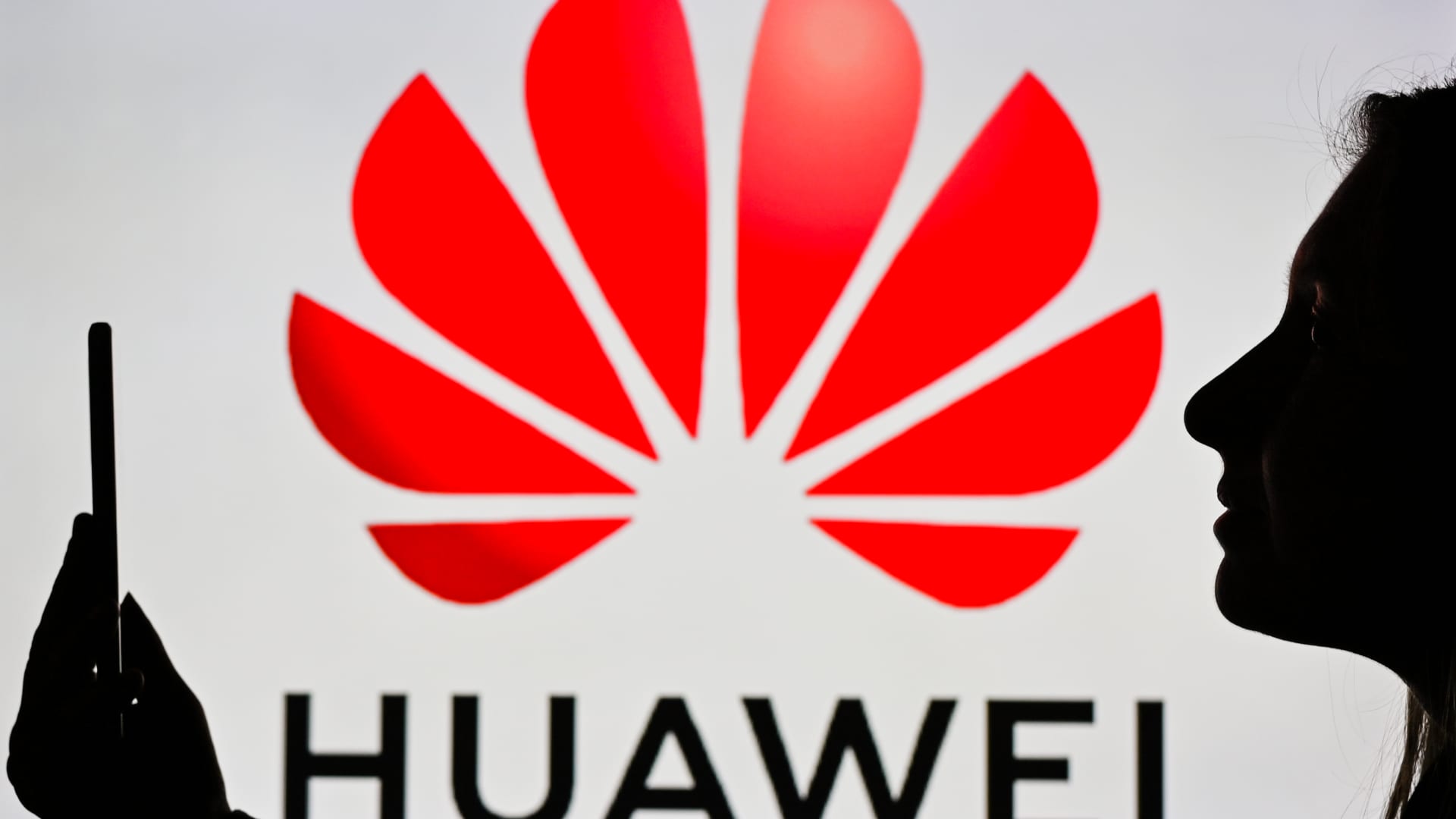
An image of a woman holding a cell phone in front of a Huawei logo displayed on a computer screen. Canada on Thursday said it plans to ban the use of China’s Huawei Technologies and ZTE 5G gearto protect national security, joining the rest of the so-called Five Eyes intelligence-sharing network.
Artur Widak | Nurphoto | Getty Images
LONDON — The U.K. government extended a deadline for telecom companies to remove equipment from Chinese tech giant Huawei from their 5G mobile networks.
Telcos will now have until December 2023 to remove Huawei equipment, such as that used at phone mast sites and telephone exchanges, from their network “cores” — where some of the most sensitive data is processed. The government had originally ordered them to do so by January.
Meanwhile, a requirement for firms to reduce the level of Huawei equipment in their non-core networks to 35% has been delayed to October 31 2023 — later than an initial July ultimatum.
They will still need to ban new Huawei 5G installments and completely eliminate it from their networks by the end of 2027. The order was enshrined in law last year with a piece of legislation called the Telecoms Security Act.
Prime Minister Liz Truss’s government has sent legal notices to 35 U.K. telecoms network operators to officially enforce the move.
Britain had initially said it would allow Huawei in its rollout of 5G networks. But in 2020, the government opted to ban Huawei over data security concerns. The Shenzhen-based firm was classed as a “high risk” vendor, meaning it posed possible risks to national security.
Officials on either side of the Atlantic are worried Huawei’s technology could allow China to spy on sensitive communications and other data. Huawei has long denied the claims and said moves to block it are “politically motivated.”
That decision was a result of the National Cyber Security Centre’s emergency review of Huawei shortly after the U.S. imposed sanctions on the Chinese giant cutting it off from key semiconductor supplies. The move also came amid an intense trade battle between China and the U.S. — a close ally to the U.K.
Previously, telecoms groups like BT and Vodafone had been told to remove Huawei 5G equipment from their “core” by January 2023. However, some companies took issue with the measures, concerned this didn’t give them enough time to strip out the equipment from their infrastructure, a costly exercise.
In June, BT requested an extension beyond the government’s January 2023 for removal of Huawei from core 5G infrastructure, saying it might not meet the deadline due to delays caused by Covid-19 lockdowns. BT CEO Philip Jansen had even warned the ban may result network outages for customers if implemented too hastily.
Vodafone has already removed Huawei from its core.
In a press release Thursday, the government said it extended the January 2023 deadline to “balance the need to remove Huawei as swiftly as possible while avoiding unnecessary instability in networks.”
A BT spokesperson wasn’t immediately available when contacted for comment by CNBC.
U.K. Digital Minister Michelle Donelan said: “We must have confidence in the security of our phone and internet networks which underpin so much about our economy and everyday lives.”
She added: “Thanks to this government’s tough new laws we can drive up the security of telecoms infrastructure and control the use of high-risk equipment. Today I’m using these powers and making it a legal requirement for Huawei to be removed from 5G networks by 2027.”
Ian Levy, technical director of the U.K. National Cyber Security Centre, said: “Society increasingly relies on telecoms and the NCSC, government and industry partners work closely to help ensure that these networks are secure and resilient in the long term.”
“The Telecoms Security Act ensures we can be confident in the resilience of the everyday services on which we rely, and the legal requirements in this Designated Vendor Direction are a key part of the security journey,” he added.






